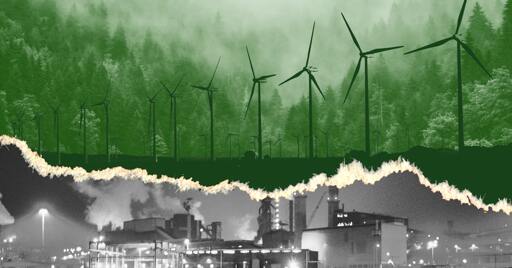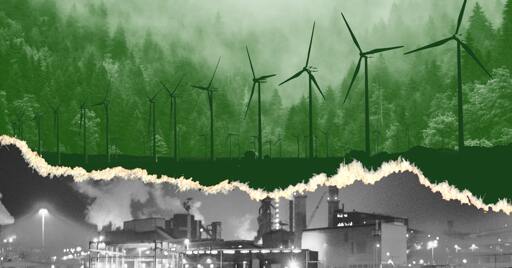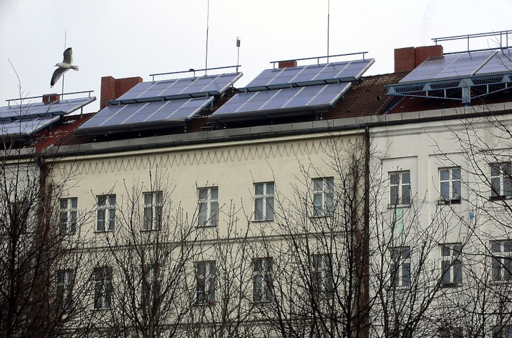- 291 Posts
- 372 Comments

 2·3 days ago
2·3 days agoWell, that’s depressing.

 7·3 days ago
7·3 days agoPerhaps unsurprisingly, a lot of the people who call their political opponents “NPCs” and fantasize about replacing women with android sexbots have become AI shills (or AI doomers) in this year of our Lord 2025.

 91·3 days ago
91·3 days agoOkay, so I’m going to jump in and defend podcasts, because I think they’re an exception to the Dead Internet Theory.
There is (ironically, I know) a podcast I really liked on the topic:
The quick summary is, while some kinds of social media have been captured by big centralized companies, centralized, and enshittified - like microblogging with X, or videos with YouTube and TikTok - podcasting hasn’t.
Because podcasting is distributed via RSS, a free open source protocol, anyone can create and distribute a podcast and there are hundreds of podcast apps to listen with.
There’s no centralized location where you have to go to listen to podcasts - you search for podcasts on whatever app you like and you follow the podcasts you want to listen to. Apple Podcasts and Spotify have big databases of podcasts, but you don’t have to use either of them, as long as somebody has an RSS feed you can subscribe directly to their podcast without going through a gatekeeping platform of any kind.
This makes it really difficult to enshittify the podcastosphere with a ton of AI slop, because people follow the podcasts they want to follow, they don’t rely on an algorithm to feed them new podcasts the way TikTok feeds them new videos, and if their podcast app tries to promote content they don’t want, they can just switch apps.
So while this idea is shitty and a podcastosphere dominated by AI would suck I really don’t expect it to get much traction.

 11·3 days ago
11·3 days ago(clippy) It sounds like you’re trying to build a commune. Would you like help with that? (\clippy)
So I’m going to try to answer your questions, but before I do I want to emphasize the commune issue. It sounds like you’re trying to draw people together, artificially build a community where people live, work, and play in common under the guidance of the same organization, and keep them working together for a lengthy period of, frankly, impoverished struggle.
You’re trying to build a commune from the top down.
The problem with communes is they require a HIGH level of trust between members BEFORE they commit to sharing their lives, finances, and other resources. because of how quickly they can lose everything if the commune’s leadership exploits or fails them, and how easily they can be exploited by free riders and abusers.
And they need members who won’t abuse that trust. Which, historically, has been the sticking point.
When you set up a situation like this, where a person’s employment, housing, and social life all depend on maintaining their status within the same organization, you’re building a fragile edifice. Because if that organization fails, either through bad decisions, exploitation, or reasons out of its control, everyone who relies on it goes down with it.
It’s the opposite of the sustainability and resilience that we need in the uncertain future.
And it attracts a higher than normal share of desperate people, exploiters, and bad actors. Because people with good prospects in society won’t gamble those prospects, and people with strong economic and social ties to society won’t give those up, by submitting their entire lives to the governance of one organization.
Also, I am NOT millennial or Gen-Z so am not going to speak for them - polling people in those demographics directly would be a lot more helpful to you. And since the answers to a lot of your questions will reasonably correlate with age (e.g. older people who already own homes will be MUCH less likely to go live in a yurt), I think adding age ranges to your more formal polling will really help you focus on your core age demographics.
Anyway:
Q1. I’d be mostly unwilling, primarily since I’d have to quit my job, though I’d at least be curious. Not speaking for other generations.
Q2. It depends VERY MUCH on the details your question leaves out. Do I know the person? Can I choose the person? Can I switch people? Being stuck with the same roommate for five years can be fine and can end up a complete nightmare - the situation would need a strong conflict resolution model at minimum.
And then there’s the environment. What are summers and winters like? What heating and cooling exists? What kitchen/bathroom facilities are there? Is there any privacy in this four seasons tent? Is this going to be five years of basically camping?
And what’s the incentive? Do I have to pay for five years of camping? What do I get out of it and do I get any of that reward if I back out before the five years?
PLEASE DO NOT TRY TO ANSWER ALL THESE QUESTIONS. I’m not joining your commune and don’t need the answers. I’m just bringing up things people WILL want to know before committing.
Q3. Holy labor law violations, Batman! I count a max of 72 hours of blue collar + white collar + teaching work in there, and I would absolutely not sign up for anything even remotely near that without seeing a contract with much clearer labor terms and worker’s rights protections. And how exactly is the 8-24 hours of “leisure” separate from the rest of your life during that week? Is this managed leisure of some kind? Honestly that description reminds me of a 996 startup grind and I would come at it with extreme suspicion.
Q4. And there’s the incentive: five years of camping with a roommate and 996 grinding in exchange for the lifetime right to live in a 2000 sq ft house. For me: absolutely not. For younger people who have basically no chance of ever owning a house in this economy? I won’t speak for them, but maaaaaaybe?
Here’s the thing. I don’t believe land should be owned. I believe land should be managed by communities, with usage rights to a home guaranteed to the members of that community who reside in it. So from THAT standpoint your idea sounds like a great prefigurative phase shift from private ownership to community ownership. But it’s still ownership, because we still live under capitalism - and if I don’t own the home I live in, who does? What rights do they have that I don’t? And what happens when we disagree?
And circling back: who decides what counts as “satisfactorily maintaining”, and to whom can someone appeal if that decision-making body abuses its authority? Because if it takes five years to vest in a house, and in year 4 management realizes they’re not going to have enough houses for everybody and decides to kick out half their workers…
Q5. Fuuuuuuck no. This is where a lot of communes fail - because they’re totalizing, and the worker’s homes are linked to the worker’s jobs are linked to the worker’s status in the community, and if the employment fails everything fails. (Look up “The Farm” in Tennessee.) I think a community that relies so heavily on one employer, owner operated or not, multiple divisions or not, is dangerously fragile.
Q6. As long as it takes? Not writing any startup a blank check for my labor. Sorry.
Q7. Won’t change. My problems with this setup have nothing to do with the size of the house.
Q8. Holy shit, no, fuck that. So abusable.
Q9. My first reaction is to fear for victims of domestic violence.
Without going on an incredibly lengthy rant, the best way to protect individual human rights is to guarantee those rights universally, and, if those rights have to be restricted or removed for some reason, have a carefully structured procedure with objective oversight, checks and balances, and an appeal process, before anyone’s rights are restricted. And if this sounds like a court system, that’s because taking away people’s rights for the good of society is what a court system does, and even then there are some rights not even a court can take away. And evicting someone from their home should definitely be under the jurisdiction of such a court system.
A system where someone can lose their place in a commune - lose their home, lose whatever sweat equity they put into the work of the commune, and so on and so forth - if a sufficient number of fellow commune members hate them enough to vote against them, is a bad system. The way it could facilitate racism, bigotry, prejudice of all kinds, should be obvious.
And I bring up domestic violence in particular because I’ve seen too many people somehow find the courage to accuse a well-respected community member of abuse, and end up ostracized, punished, even banished from their community, because the community took the side of the well-respected member and believed they’d falsely accused a good man of a heinous crime.
Direct democracy may not be the worst possible way to run a judicial system, but it’s really, really close.
Q10. That question has so many caveats and unknowns that the answer to it wouldn’t change anything for me.
Which is funny to me, in the “if we don’t laugh we’ll cry” sense.
Because whenever I go to a museum and look at modern art, abstract art, and so on, I see all sorts of curators notes explaining how this mix of shapes and colors and designs actually has some sort of profound, inspirational, generally leftist or anti-establishment, message.
But people don’t see the message or understand the message right away. From a casual look, it’s just pleasing colors and shapes. You have to believe it matters and put in the effort to understand it in order to get those inspirational messages.
In other words: if you oppose the establishment, and you are looking for modern art that opposes the establishment, you will find it. But if you’re an average person that anti-establishment message will mean nothing to you. You won’t even think to look for it.
So it’s not that modern art doesn’t contain left or progressive ideologies. It’s worse. Because it does contain left and progressive ideologies in a self censored form. All the power and energy of these left and progressive artists has been captured by the establishment and harmlessly redirected into pursuits that “support” left and progressive causes but pose no threat to the powers that be.
And I’m thinking more and more this makes it bad art.
Think about advertisements. If someone in a car looks out and sees a billboard passing, they should understand, in the few seconds they see that billboard, what product it’s advertising and why they should buy that product. A billboard that doesn’t get those two points across in a matter of seconds has failed at being a billboard.
And a piece of visual art that doesn’t get those same two messages across in a matter of seconds - what message it’s sending and why you should care - has failed at being visual art.
Edit: whether you agree with the message or not, this is art with an incredibly clear message - and the attempt at government censorship made it even clearer -https://slrpnk.net/post/27304084

 111·4 days ago
111·4 days agoAn attempt at censorship failed because the censors didn’t understand the system they were trying to censor. I think that’s both funny and satisfying.

 941·4 days ago
941·4 days agoOh no, says Sam, the eminently predictable consequences of my own actions have come to pass through no fault of my own.
And he’s not wrong. If I search for any topic on Google without narrowing my search very carefully, the first page will consist of one AI generated autoresponse and ten AI generated articles from SEO-exploiting link farms.
If I search for advice on Reddit I have to narrow it down to posts from before 2022 or comments will be full of users who see a question and think “it is both useful and appropriate for me to plug this question into ChatGPT and post its answer.”
(Edit: oh, shit, I forgot, Reddit also inserts links to AI-generated answers in old comments. So I’m reading an old comment and think the author linked to something relevant but the link actually triggers Reddit Answers to supply AI garbage. Ugh.)
Product reviews have been 95% spam and ad copy for decades.
I read fucking fanfiction and half the stories that started in 2025 show signs of being at least edited by LLMs.
If that’s not the shambling zombie corpse of the Internet pretending to be human I don’t know what it is.

 71·5 days ago
71·5 days agoThe Trump administration is going mask off in so many ways that have nothing to do with racism. Though that too.
This is connected to all the formal groveling sessions where Trump’s minions or big tech CEOs take turns thanking Trump for existing and for being the incredible awesome masculine big-handed alpha male America needs. And this is banana republic dictator shit, sure. But it’s also how billionaires act towards their employees and subordinates.
All of them.
What Donald Trump is doing in public is no different from what Zuck and Musk and Bezos and all their ilk do in private with their lower caste servants and sycophants.
Demand flattery, hold court and let their courtiers line up to praise them, because they don’t understand the difference between flattery and respect. Reward obedience and punish disobedience, because they don’t know the difference between obedience and loyalty. And wield your power blatantly and without subtlety, suck up to your superiors and bully your inferiors into obedience, because they don’t know the difference between strength and authority.
Trump does this shit in public because he doesn’t believe Americans care about equality anymore. He thinks Americans want to be led by a powerful alpha male leader who demands public displays of submission and gets them. He thinks America doesn’t want a President, first among equals, but a King, who stands above his subjects. And, unfortunately, I don’t think he’s wrong.
And the King is pleased - pleased - when their subordinates come to literal physical blows over access to the King. Because such men confuse aggression with strength, just as they confuse flattery with respect.
Two of Trump’s courtiers were so desperate for his approval that they almost came to blows over it. These are two men so manly that they are willing to physically fight other men who disrespect them - which makes them two alpha males, as conservative minds see it - and these two alpha males respect Trump so much that they’re willing to physically fight for Trump’s attention.
In the mind of Trump and those like him, this is one of the greatest compliments he can receive.

 4·5 days ago
4·5 days agoSame. I haven’t had time to watch this yet but I’m looking forward to it.
Though my first thought is: you can believe in animal rights without being a vegan. (I mean, if a mountain lion eats a goat, has it violated the goat’s rights? There are plenty of people who, for example, oppose the unimaginable cruelty of factory farming on animal rights grounds and still believe there are moral ways to kill animals for food. I don’t want to get into whether that’s an ethical or even internally consistent position, it’s enough for my point that they exist.)
But you can’t really be a vegan without believing in animal rights. Because veganism isn’t about diet - choosing to not eat animal product out of health or environmental concerns makes you plant-based, not vegan. Veganism is an ethical philosophy based on the belief that animals have rights, including the right not to be used as resources by humans.
I think that veganism is about personal conduct, and animal activism is about changing the world
And this gets to my second thought. The personal is political. If you are a vegan, if you live your beliefs, if you only go to vegan restaurants and only purchase vegan food and only cook vegan meals for your friends and family, you are changing the world. Because living your values, and showing those values to the people around you, changes how they think and feel about veganism and animal rights. Maybe to a small degree. Maybe you’re only changing the people around you a little bit. But that’s how all change starts - one person at a time.
And same way with animal rights. If you believe in animal rights, but you don’t change anything you say or do because of that belief, then, yeah, you’re not making any difference, any more than if you were a vegan who eats meat while around other people to avoid standing out. But if you make decisions because of your belief in animal rights - say, you don’t purchase from companies that conduct animal experimentation, you don’t wear fur, you don’t eat veal - then you are, to some degree, being an activist. You are having that same kind of little daily impact that makes a vegan lifestyle inherently an activist lifestyle.
Anyway, yeah, the personal is political, and don’t devalue the importance of personal conduct in making a difference to the world. That’s my rant.

 5·5 days ago
5·5 days ago* If you wanted to summarise this letter on a t-shirt, it would be “People > Protocols > Platforms”. *
Can I get this under Calvin pissing on a Disney logo?
Seriously, this is now my favorite summary of the fediverse.

 1·5 days ago
1·5 days agoWait wait wait. Hold on. You believe that Republican voters do not like or support Trump personally? That they disagree with his policies but grudgingly support him because the Democratic alternative is worse? That Trump’s support among Republicans voters is primarily a matter of Party loyalty?
That’s so profoundly the opposite of what I’ve experienced that I can only assume we’re living in different parallel universes.

 1·5 days ago
1·5 days agoNah. Tbh it’s just your average Twitter comment thread, arguing over pointless shit, and then one side of the argument reposting the thread on their own website with a bunch more commentary about why they’re right.
And it’s the side I agree with, but still.

 1·5 days ago
1·5 days agoIf you think every Republican believes and agrees with all or even most of Trump, then you are in a bubble.
https://www.realclearpolling.com/polls/approval/donald-trump/approval-rating/republicans
Lol. Trump has almost a 90% approval rating among Republican voters. That’s not “hold your nose and vote” territory. That’s not “I disagree with Trump but I support him because I’m a loyal Republican” territory. Republican voters love Trump because he gives them what they want. And the Republican establishment saw the writing on the wall and got in line.
Republicans outplayed you at the ground level. Part of that is religion
Looooool.

 1·6 days ago
1·6 days agoIf every registered voter in the United States had voted, [Trump would have won by an even wider margin.] (https://www.npr.org/2025/06/26/nx-s1-5447450/trump-2024-election-non-voters-coalition)
Leftists did not sabotage Biden or Harris in 2024. Leftists held their noses and voted. If anything, it was the center and center-right who stayed home out of distaste for Trump.
And that left unity wasn’t enough, because Biden was so unpopular with American voters, and because Harris either couldn’t or wouldn’t offer anything different from Biden.
You guys who demand we vote blue no matter who, who blame the American left for not falling in line behind Harris, are completely misunderstanding the election of 2024. Because the left did vote blue. The left did rally. The left did fall in line. Left-wing criticism of Biden and Harris is not why Harris lost.
You know how we’re going to lose the next election again? If we - by which I mean American moderates, liberals, leftists, progressives, and anti-fascists of all stripes - don’t recognize why Biden and Harris lost. If we pick another corporate Democratic standard bearer who promises to govern like a moderate Republican and shift the party further to the right. Because if Trump or a Trump clone runs in 2028 we’re not going to win by marketing Trump Lite.
If the Democratic Party does not recognize where it went wrong with Clinton, Biden, and Harris, and give the American people the actual hope and change they demand, we will see Trump 2028, Vance 2028, Loomer 2028, or whoever else flatters Trump enough to become the anointed MAGA standard bearer between now and then. And we’ll deserve it.
Also, I gotta say:
The Republicans can hold their nose and vote for a candidate exactly opposite their values.
This is exactly the opposite of what actually happened.
The Tea Party Movement, the Heritage Foundation, all the other alt-right and far right organizations out there, they recognized that the Republican Party did not share their values. So in 2010 and 2012 they worked their asses off to push Republican primary voters to the right and they primaried the fuck out of moderate Republicans. And after 2012 they realized Trump was exactly what they wanted and they got behind him 100%.
It’s hard to remember now back in 2012, 2016, how much Trump was hated by establishment Republicans. They were all about outsourcing and globalism, he was about tariffs and American manufacturing. They were about immigrant labor, he was about sealed borders. They were trying to transition away from open racism and bigotry, he wasn’t afraid to hate. They thought he was a stupid, vicious, incompetent thug. And he was. And he is. But that was what Republican voters wanted. And Republican voters weren’t afraid to primary Republican politicians and end the careers of Republicans who didn’t support Trump.
And Trump got so popular, dominating Republican voters and controlling Republican primaries, that the entire Republican Party fell in line.
It’s not Republican voters, here in 2025, who have to hold their nose to vote. It’s Republican politicians who have to swallow their doubts and bend the knee to Trump or be primaried out of existence by MAGA voters.
Wouldn’t it be cool if some politician on the left could get that popular?

 14·7 days ago
14·7 days agoThe more I read, the more I shared the author’s frustration here. The person the author was arguing with was claiming that “punk” can’t exist in a utopia, that it needs a dystopian society to rebel against, so because “solarpunk” is a utopian movement it can’t be punk.
Which, one, that’s pedantic bullshit that quibbles about terminology and makes no substantive critique of solarpunk ideas; two, it’s wrong, because solarpunk as a genre does have a dystopia it’s rebelling against, and that dystopia is the modern 21st century capitalist West; and three, there is nothing less punk than trying to gatekeep the definition of “punk”.
Which is to say, the more I read, the more disappointed I was in this article, because there are genuine substantive critiques of solarpunk, eg as an escapist fantasy, as impractical utopianism, and ultimately this whole long article was just an argument about whether we should call solarpunk punk.
But there were some good book recommendations in it, so that’s cool.

 5·8 days ago
5·8 days agoI suppose the artist will have to content themselves with the rest of the Internet instead.

 62·8 days ago
62·8 days agoTrump had one year to fuck up the US’s COVID response. And he fucked it up pretty badly, mind you.
Biden had four years to fix Trump’s shit. He failed.
We were in a depression. We needed a New Deal. We needed to get help to the people who needed help. What Biden gave us was a “Green New Deal” that gave billions to big greenwashing corporations and nothing to ordinary people; a pathetic attempt at student loan forgiveness; a few hundred dollars in checks that didn’t even cover one month of rent increases, never mind the rent itself.
Unemployment skyrocketed, inflation boomed, and people got more and more insecure about their jobs and homes and their ability to fucking feed their families. And don’t get me fucking started on the refugee crisis.
In May 2020 the median price of a house in the US was 275K. In May 2025 it was 427k. The price of a house almost doubled in five years. Which was great for homeowners but horrible for renters and young people.
(You want to know why so many 20somethings voted Trump? Ask them if they ever expect to own a home. Ask them if they think they’re going to be better off than their parents. Ask them if Biden gave them hope for the future and you’ll get your answer.)
Meanwhile, Biden pointed at the stock market - which was booming, because the rich were getting richer by driving small businesses out of business - and told America the economy was great and only losers and Republicans thought otherwise.
Biden isn’t solely responsible for the COVID depression that we are still in. But he is responsible for pretending it didn’t exist and for not doing shit to help Americans out of it. And we’re all paying the price for his failure.

 91·8 days ago
91·8 days agoAnd this post is great for so many reasons, and so many aspects of life, other than just veganism. Because it argues - better than I can in this space, so just read the article - for why your individual actions, your individual choices, and your courage to talk about your actions and choices and the moral beliefs behind them, really do make a difference. One person at a time. One life at a time.

 85·9 days ago
85·9 days agoNo, you’re sending a message to Biden’s critics. We should have swallowed our criticisms, gotten in line, voted blue no matter who? Is that right?
Bullshit.
The person most responsible for Trump is Trump.
The second most responsible person is Biden, and the third is Harris, for running a shit campaign after a shit four years of neoliberal rich-get-richer politics and letting Trump win.
The fucking landslide of voters choosing a second Trump term over a second Biden term has nothing to do with a handful of online leftists yelling “don’t waste your time and energy on Biden because he sucks and is obviously going to lose” and/or “we fucking told you so”.
Frankly, it has everything to do with people being better off under Trump’s first term than under Biden. And if y’all don’t drop the “blame voters for not falling in line” bullshit and give us a real progressive candidate to vote for, y’all are going to give us Vance/Trump Jr 2028, with Donald Trump as House Speaker and shadow President Putin-style.

















That. Because those are the EVs that were rolled out in developing countries without proper foresight or supporting infrastructure.
I expect it’ll work out in the long run, but such a waste.